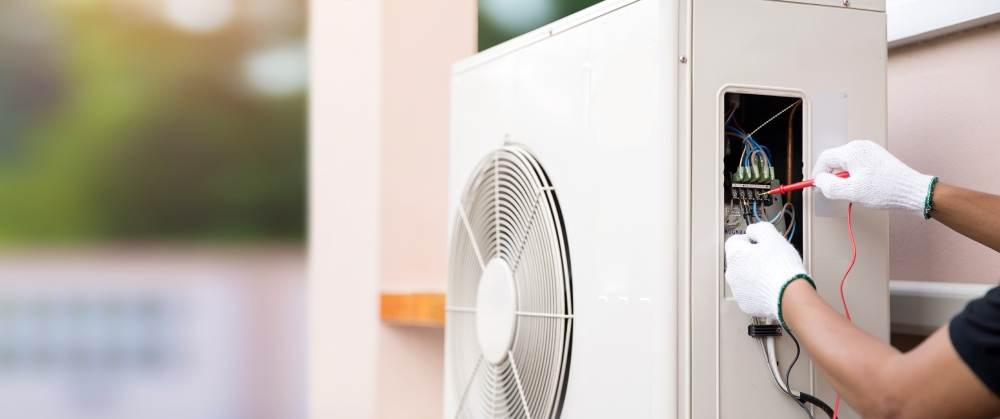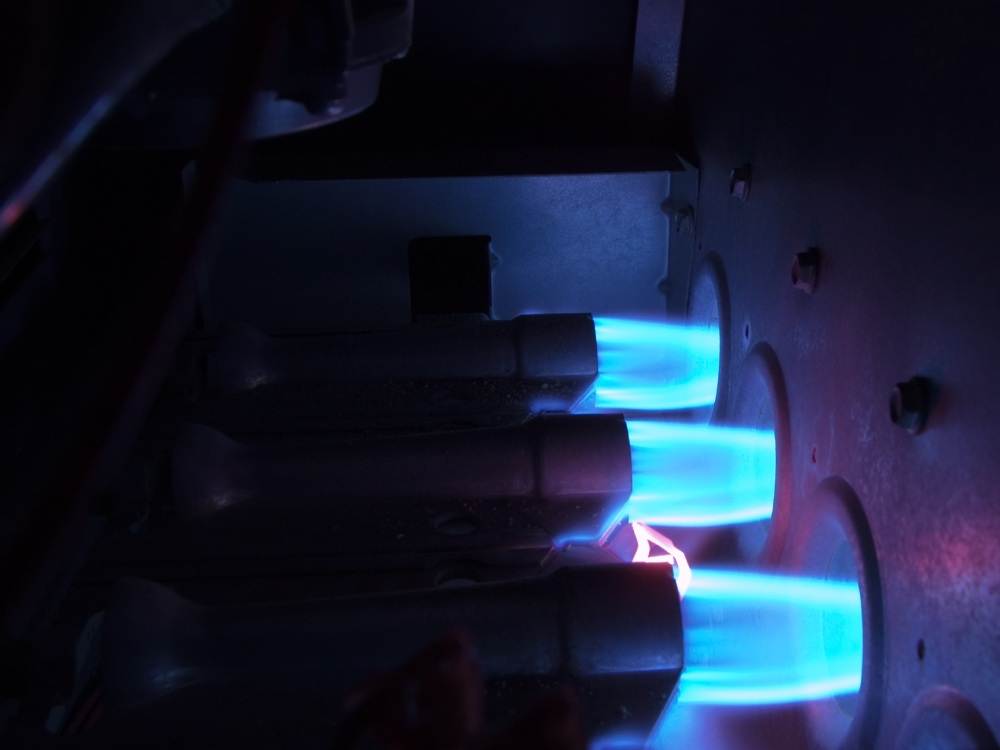
Furnaces and boilers are the most common ways for people to heat their homes, according to the US Department of Energy.
However, there are plenty of other options out there for keeping your home at a comfortable temperature during the winter. Electric heat pumps, for example, are cost-efficient and very effective.
If you’re wondering about whether to use a gas furnace vs. a heat pump in your home, we can help. Keep reading to learn more about electric heat pumps and gas furnaces. We’ll cover their pros and cons, and what could make one or the other the right choice for you.
Gas Furnaces: Basic Explainer and Pros & Cons
Gas furnaces use natural gas (and occasionally propane) to generate heat by combustion, warming cold air drawn from your home. The blower fan then circulates that warm air through your home. Your thermostat settings trigger the beginning and end of this cycle.
Pros of Gas Furnaces
Gas furnaces can quickly heat the air in your home, bringing it up to your preferred temperature. That’s an especially nice advantage to have when the temperature drops quickly or you’re returning home from an extended trip. Furnaces make it a little easier to get comfortable.
Gas furnaces are also more effective at heating homes in colder climates as compared to heat pumps, Carrier explains. However, in the Oklahoma City metro, we have a climate where both gas furnaces and heat pumps can reliably heat your home.
It’s important to note that natural gas is usually easy to access. If your home connects to natural gas lines, it’s a simple process for a qualified installer. However, if you don’t have natural gas lines running to your home, you’ll have to pay more to connect to them.
Gas furnaces are designed to connect to existing HVAC systems. This can make HVAC installation easier and get your home back to normal faster when you need to replace your home heating appliance.
Cons of Gas Furnaces
One of the biggest disadvantages of a gas furnace is that it only generates heat. It’s true that central air systems use your furnace’s fan to circulate cool air from your air conditioner.
However, you still need to have a separate air conditioner installed and operational. That’s a big difference in the electric heat pump vs. gas furnace debate — a heat pump can do both jobs.
There are a lot of factors to consider in terms of gas furnace vs. heat pump costs. Changing electricity and natural gas costs, installation, maintenance, and more all play a role. However, a heat pump is often less expensive in the long run as compared to a gas furnace.

Electric Heat Pump: Basic Explainer and Pros & Cons
Electric heat pumps use the same basic principle as refrigerators and air conditioners to heat and cool homes. They use electricity, along with refrigerant, coils, and other components, to pull heat from cold outdoor air and move it into an indoor space. In the summer, these pumps move heat from your home to the outdoors.
Electric Heat Pump Pros
One of the biggest advantages a heat pump offers is comfort all year round in warmer climates (like ours). They heat and cool your home, meaning you don’t need both a furnace and air conditioner.
Electric heat pumps also come with more modest long-term costs than gas furnaces. The price of operation is lower, offering savings over time. There are also substantial rebates available for heat pumps as part of the Inflation Reduction Act. Consumer Reports explains the federal rebate for qualifying models is 30% of the total cost, up to $2,000 total.
Finally, heat pumps are generally reliable and dependable.
Cons of Heat Pumps
Heat pumps don’t work well in colder climates. That’s not a source for concern for most homes in OKC and the metro area, but it’s worth keeping in mind.
Heat pumps can also carry a higher initial price tag than gas furnaces in terms of purchase and installation. However, the federal rebate we mentioned can help lower the cost significantly.
Making the Home Heating Choice that’s Right for You
We hope that seeing the important pros and cons of heat pumps vs. gas furnaces leaves you feeling a little more informed about your options. Still on the fence about which to choose? We can help.
Our team will do more than give you a free, in-home estimate. They’ll talk you through the options and help you decide which is the best choice for your unique needs.
